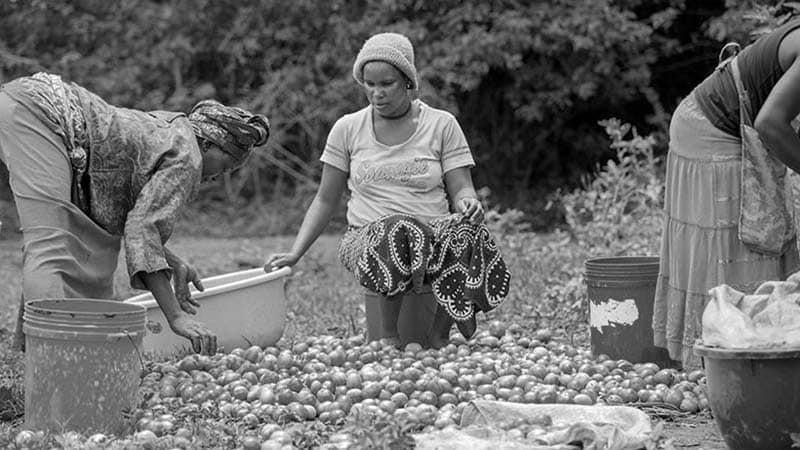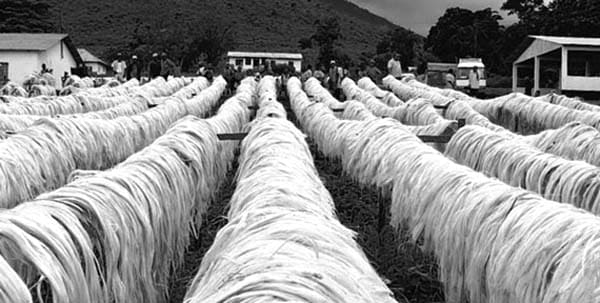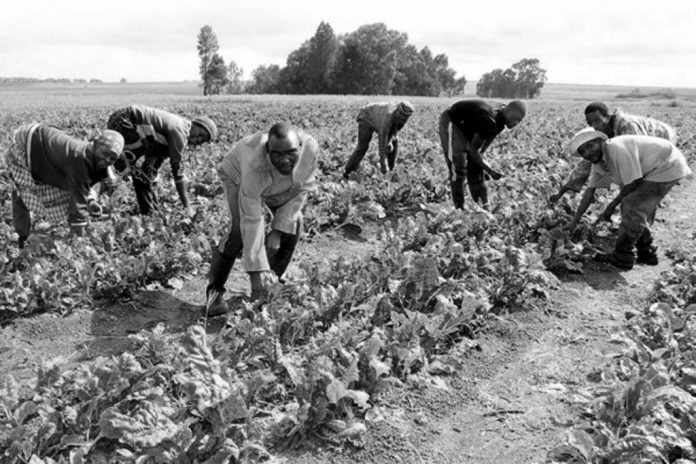National Importance of Tanzania Agricultural Policy Reasoning and Justification
The Tanzania Agricultural Policy is the result of major, regional and global changes that affect the development of the agricultural sector. At the national level there have been significant changes in the National Policy Framework resulting from the implementation of the Tanzania Development Vision (TDV -2025), the Poverty Reduction Strategy (PRSP), the National Growth and Poverty Reduction Strategy (NSGRP) I & NSGRP II), Long-Term View Plan and Five-Year Development Plan.

The core framework of the Tanzania Agricultural Policy focuses on promoting an efficient, modern, commercial, competitive and profitable agricultural industry that contributes to improving the lives of Tanzanians and achieving broader economic growth and poverty reduction. This is based on the fact that; Tanzania’s agriculture is the driving force behind the country’s economy and therefore its development is of paramount importance. To achieve this, the sector needs to grow, at least 6 percent. However, the growth rate has averaged more than 4.4 percent indicating stagnant growth over the past decade.
To address the slowdown, a number of reforms such as KILIMO KWANZA Resolve, the Tanzania Food Security Investment Program (TAFSIP), the Southern Agricultural Growth Zone of Tanzania (SAGCOT), the Subsequent Nutrition Program and the Bread Basin Program rapid implementation of the ASDP. The plans are linked to the Comprehensive African Agricultural Development Program (CAADP) African Union initiative to revitalize agricultural development in Africa through the New Partnership for Africa’s Development (NEPAD). The reforms aim to create an enabling environment for food security for households, improve agricultural production, profitability, farm incomes and reduce rural poverty. These initiatives will lead to the redirecting of public-private partnerships in the development of the sector aimed at increasing investment as a step towards improving new, medium and large-scale agriculture for increased productivity and profitability, promoting trade – non-farm activities such as small and medium enterprises with some emphasis on agricultural processing.
Although focusing on increased productivity and productivity is important in view of the fact that Tanzania is part of the global economy, there is a need for reforms in the Tanzania agricultural policy to take advantage of the existing domestic, regional and international market opportunities. Nationally, Tanzania has a population of about 45 million people which is a market opportunity for agricultural products if used properly. At the regional level there are emerging trade opportunities brought about by trade integration between the East African Community (EAC) Partner States and the Southern African Development Community (SADC). However, it is important to remove barriers to domestic trade and also to strive for regional cooperation in the standardization, quality management, metrology and testing of agricultural products. As part of the agreement, there is a need to harmonize standards and certification marks recognized by all parties or other means of better compatibility assessment that will facilitate local trade within the region.
Both the EAC and SADC trade protocols require members to align their SPS measures with international standards and to seek cooperation in building regional capacity in SPS management. The processes of harmonization of regional standards and capacity building provide great opportunities for Tanzania in its efforts to build a modern and sustainable standards system, which can enable economic growth, industrial competitiveness and expand trade in agricultural products.
In addition, distortions or excessive restrictions on quality, food security and agricultural health standards may hinder local trade in the region. It is also possible that low enforcement standards may allow certain trade, which could lead to the transmission of pathogens and diseases. Agricultural transformation in the modern sector and trade is a prerequisite for increasing Tanzania’s trade in agricultural products within the region.

Tanzania also participates in international trade with the European Union (EU) as a major trading partner. For trade with Europe, manufacturers and exporters are subject to strict standards of formal and private standards that combine good hygiene practices, safe use and storage of pesticides, other environmental management requirements, employee safety and other social standards for example EURO-GAP which vendors are required to comply with and obtain verification certificates. Depending on the circumstances, obtaining and maintaining such certified compliance may require Tanzania farmers and / or exporters to change their facilities, to change their technologies; improve their management systems, perform additional audits and increase record keeping. Obtaining and maintaining compliance with common personal protocols requires significant investments that are considered significant as it opens up new market opportunities and thus provides efficiency.
In addition, recent advances in bio-oil manufacturing; contract farming; climate change; organic farming; good work; biotechnology and biological security; reducing risk and youth participation in agriculture and related issues necessitate the deployment of industry control systems so as not to jeopardize production. These issues are crucial in leading the process of agricultural transformation and improvement to become more modern. It is on the basis of global, regional and national policy reforms that the Tanzania Agricultural Policy is designed to take this development.
Vision, Mission and Objectives of the Tanzania Agricultural Policy
Vision
Agricultural sector that is modern, commercial, highly productive and profitable; which utilizes natural resources in a sustainable manner as a whole in East and Central Africa and is a catalyst for a good foundation for inter-regional relations in this sector by 2025.
Strategy
Improving the transformation of the agricultural sector into a modern, commercial and competitive sector to ensure food security and reduce poverty through increased competitive production.
General Objective
Develop an efficient, competitive and profitable agricultural industry that contributes to improving the lives of Tanzanians and achieving broader economic growth and poverty alleviation.
Specific Goals pf the Agriculture Policy in Tanzania
Specific goals of the Tanzania Agricultural Policy are:
i. Strengthen agricultural support and technical services (research, mechanical engineering, irrigation, extension and training);
ii. Increase productivity, crop yields and profits from the use of production catalysts (land, labor and capital);
iii. Strengthening national food and nutrition security and additional production for export;
iv. Improving agricultural processing with a view to adding value to agricultural products and creating jobs;
v. Increase production of quality products to improve the competitiveness of agricultural products in local, regional and international markets;
vi. Increasing foreign exchange earnings from the export of agricultural products;
vii. Provide an enabling environment for attracting private sector investment to take advantage of existing opportunities due to efficiency and competitiveness;
viii. Strengthen coordination and inter-sectoral relations to increase efficiency and efficiency;
ix. Protect and promote integrated and sustainable use of agricultural land; and
x. Promoting the implementation of cross-cutting issues in agricultural activities.
For more Agriculture in Tanzania articles click here!

































